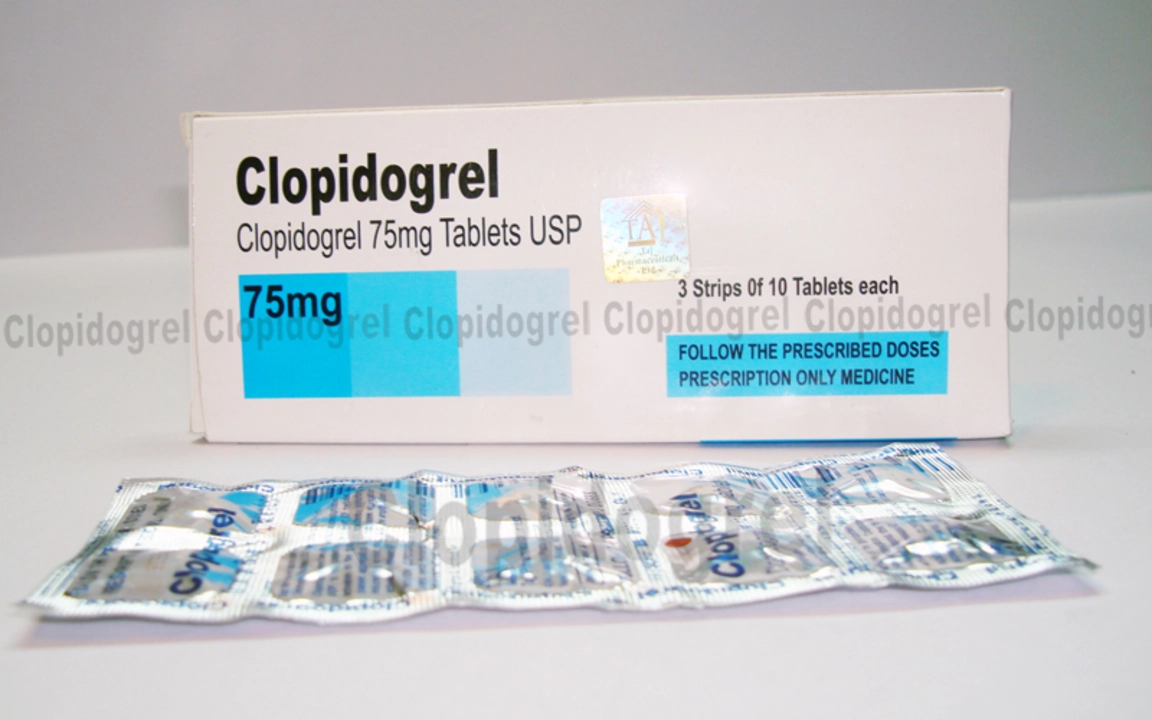Clopidogrel (Plavix): What You Really Need to Know
Clopidogrel is a common antiplatelet medicine used to lower the chance of dangerous clots after a heart attack, stroke, or stent placement. If you or someone you care about is taking it, the basics matter: how it works, what to watch for, and simple safety tips that make a real difference day to day.
How it works is straightforward. Clopidogrel stops platelets (the blood cells that make clots) from sticking together. That reduces the risk of a clot blocking an artery in the heart, brain, or elsewhere. Unlike full anticoagulants, it targets platelet function, which is why doctors often pair it with other treatments after certain procedures.
Typical use cases are clear: after a heart attack (myocardial infarction), after stent placement during angioplasty, for some types of ischemic stroke, and in certain cases of peripheral artery disease. Doctors choose it based on your specific heart or vascular condition and the balance between reducing clots and raising bleeding risk.
Common dosing is 75 mg once a day for maintenance. For immediate treatment during procedures, doctors sometimes give a one-time loading dose (often 300–600 mg) to start the drug working faster. Always follow the exact dose your clinician prescribes.
Side effects and warning signs
The most frequent and important side effect is bleeding. Expect easier bruising and occasional nosebleeds. Call your doctor or go to urgent care if you have heavy bleeding, persistent black or tarry stools, coughing up blood, blood in the urine, severe headaches, or sudden weakness—those can mean serious internal bleeding.
Other possible effects include stomach upset, rash, and unusually heavy menstrual bleeding. If you notice a new rash, persistent stomach pain, or signs of an allergic reaction (hives, swelling, trouble breathing), seek medical help right away.
Practical tips, interactions, and safety
Never stop clopidogrel without talking to your doctor—stopping suddenly can raise the risk of a clot, especially after a stent. Before any surgery, dental work, or invasive procedure, tell the team you're on clopidogrel so they can plan safely. Carry a note or wear medical ID if you are at high risk for bleeding.
Some medicines affect clopidogrel. Proton pump inhibitors like omeprazole may lower its effect in some people. NSAIDs (ibuprofen, naproxen) increase bleeding risk when used with clopidogrel. Blood thinners, certain antidepressants, and herbal supplements (like high-dose fish oil or ginkgo) can also interact—always check with your prescriber or pharmacist before adding anything.
One useful conversation to have with your clinician is about genetic testing. Clopidogrel needs activation by the CYP2C19 enzyme in the liver. Some people have variants that make the drug less effective. If your doctor suspects poor response, they may recommend testing or an alternative drug such as ticagrelor or prasugrel.
Keep a steady routine: take clopidogrel at the same time each day with or without food, store it as labeled, and refill before you run out. If side effects bother you or you miss doses often, talk to your provider—there are safe alternatives and strategies to help.
If you want deeper details on dosing after stents, alternatives, or how interactions work, check reliable medical pages or ask your healthcare team. Good questions and steady follow-up make clopidogrel work safer and better for you.
Clopidogrel for Children: Safety, Dosage, and Considerations
As a parent, it's important to be aware of medications like Clopidogrel that can be given to children. Clopidogrel is an antiplatelet drug typically used to prevent blood clots, and it can be a safe option for children when prescribed and monitored by a healthcare professional. The dosage of this medication will vary based on the child's age, weight, and specific medical condition. Keep in mind, it's crucial to follow the doctor's instructions for administering Clopidogrel and to watch out for potential side effects. Always consult with your pediatrician to determine if this medication is appropriate for your child and to discuss any concerns or questions you may have.
View more
